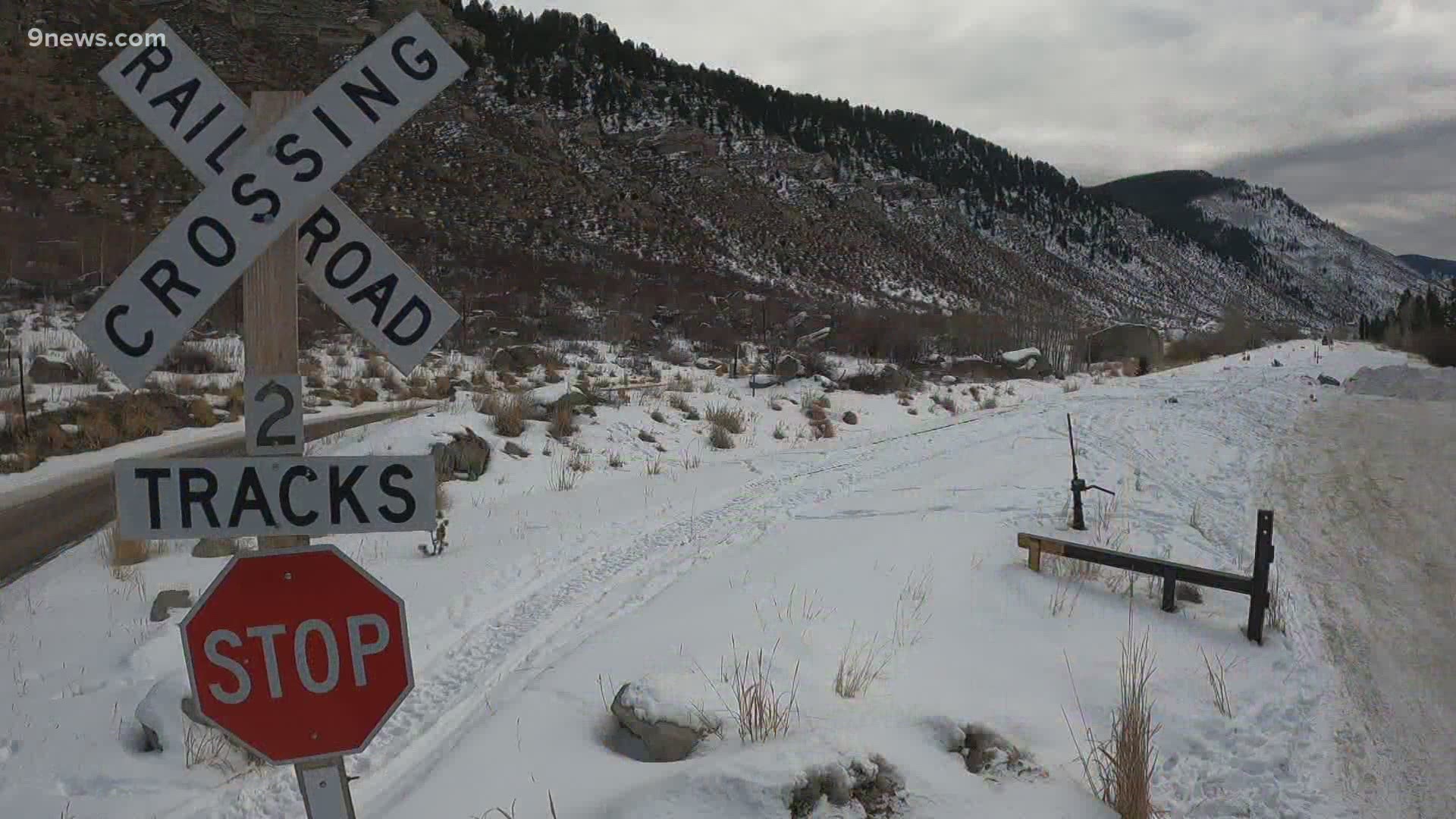LEADVILLE, Colo. —
The Surface Transportation Board on March 25 rejected a plan by a rail operator to revive train traffic on Colorado’s mountainous Tennessee Pass Line.
Colorado Midland & Pacific Railway Co., a new division of Texas-based Rio Grande Pacific Corp., asked the transportation board on Dec. 31, 2020, for streamlined approval of its plan to run trains on the long-dormant rail line between Gypsum and Cañon City.
The railway operator asked for a class exemption from rigorous review because its proposal was “limited in scope.” The transportation board allows expedited class exemptions to new carriers like Colorado Midland & Pacific so they might acquire and operate railways to continue service for communities along the line.
>> This story is powered by COLab, the Colorado News Collaborative. 9NEWS joined this historic collaboration with more than 40 other newsrooms across Colorado to better serve the public.
>> The video above aired when the Tennessee Pass Rail Line could return
A chorus of opposition from conservation groups and communities along the tracks in Eagle County and the Upper Arkansas River Valley’s Lake and Chaffee counties argued that the proposal was hardly limited in scope and required intense environmental scrutiny.
Rio Grande Pacific Corp. is planning a new railroad in Utah to connect oil fields in the Uinta Basin with the national rail network. Communities along the dormant Tennessee Pass Line feared the company would route crude through the White River National Forest and along the Arkansas River through Buena Vista, Browns Canyon National Monument and Salida.
Colorado Midland & Pacific last week amended its proposed plan, asking the transportation board to specifically prevent it from moving crude, gas and hazardous materials on the rail line. The company said it would only move passengers and commodities along the tracks, which were idled by owner Union Pacific in 1997 following a series of derailments and spills.
The Surface Transportation Board on Thursday called the proposal “highly controversial” and the deluge of opposition raises “unresolved questions that require more detailed consideration than the expedited class exemption process is designed to provide.”
The board said the operator’s promise to not ship crude “does not resolve the controversy.” The board said Union Pacific was “not persuasive” in arguing that the proposal was a “routine non-controversial shortline lease transaction.”
“In light of the substantial controversy and unresolved issues requiring more detailed analysis that have been raised, the class exemption procedures are not appropriate for this case,” reads the board’s ruling.
The ruling left open the opportunity for Colorado Midland & Pacific to lease and operate the line through a different procedure “that would allow for the more comprehensive review required here.”
Chaffee County Commissioner Keith Baker, who has pushed for an in-depth environmental review of the proposal, cheered the board’s decision.
“I’m happy the STB saw it our way and called it. This requires much more intense scrutiny that it would have otherwise gotten if they went ahead and validated the plan,” Baker said. “For me, this shows what counties can accomplish working together outside of the normal associations. Just banding together on a task-focused effort like this … and we got it done.”
Jeremy Nichols, with the conservation group WildEarth Guardians that provided lengthy comments to the transportation board, also applauded the decision.
“Look at the trouble we can cause when we are all united,” said Nichols, whose group blasted Colorado Midland & Pacific’s contention that the proposal would have minimal environmental impact. “Look at how many people looked at this plan and said, ‘No way.’ Local governments, associations both regional and national and so many individuals. The Surface Transportation Board clearly heard the message.”
A spokeswoman for Colorado Midland & Pacific said the company is reviewing the ruling and “will consider the next steps."
SUGGESTED VIDEOS: Local stories from 9NEWS

